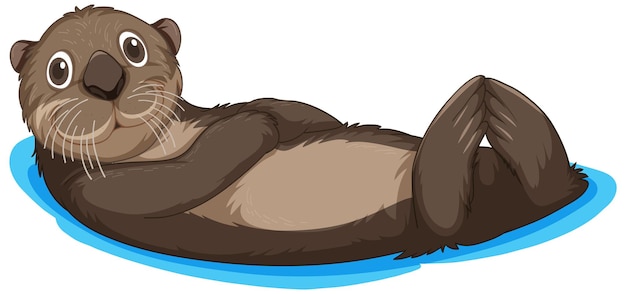Fascinating Facts about Sea Otters

Sea otters are the smallest marine mammal in the world.
They have the thickest fur of any animal, with up to one million hairs per square inch.
Sea otters have built-in pockets under their arms where they store their favorite rocks.
They are excellent swimmers and can hold their breath for up to five minutes.
Sea otters use tools, such as rocks, to crack open shellfish.
They have a unique pouch in their armpits where they keep their favorite food items.
Sea otters have a strong social structure and often hold hands while sleeping to prevent drifting apart.
They are known for their playful nature and are often seen sliding down mud or snowbanks.
Sea otters have a special way to keep their fur clean – they groom themselves using their paws and teeth.
They can eat up to 25% of their body weight in one day, consuming a diverse diet of shellfish and other sea creatures.
Sea otters have a high metabolism to keep warm in the cold ocean waters.
They have the densest fur of any animal, which provides excellent insulation.
An adult sea otter can weigh between 50 and 100 pounds.
Sea otters hold hands with their mates while sleeping to prevent drifting apart in the water.
They have a unique way of eating – they float on their backs and place their food on their chest to feast.
Sea otters have a specialized hand structure that allows them to grasp and manipulate objects with their paws.
Fascinating Facts about Sea Otters part 2
They are incredibly agile in the water and can swim at speeds of up to 7 miles per hour.
Sea otters are known for their vocalizations, including whistles, growls, and chirps.
They have a thick layer of blubber that helps them stay warm in frigid waters.
Sea otters have retractable claws that they use for grooming, catching prey, and climbing.
They are excellent hunters and can find prey using their sensitive whiskers.
Sea otters have a playful behavior that helps them learn valuable survival skills.
They have a unique way of cracking open shellfish – they use rocks as tools to break the shells.
Sea otters are a keystone species, meaning their presence is essential for maintaining healthy kelp forest ecosystems.
They have a wide distribution, with populations found along the coasts of North America, Russia, and Japan.
Sea otters were once heavily hunted for their fur, leading to a significant decline in their populations.
They have a thick layer of fur that traps air bubbles, providing buoyancy in the water.
Sea otters have a slower metabolic rate while sleeping, allowing them to conserve energy.
They are known for their strong maternal instincts and care for their young for up to six months.
Sea otters have a large lung capacity that allows them to dive up to 330 feet deep in search of food.
They are considered a threatened species due to habitat loss, pollution, and illegal hunting.
Sea otters play an essential role in maintaining the health of seagrass beds by feeding on sea urchins, which otherwise overgraze the seagrass.
They have dense fur that requires regular cleaning to prevent it from becoming waterlogged.
Sea otters have a lifespan of around 10-15 years in the wild.
They are known for their ability to crack open even the toughest shells, such as those of clams and mussels.
Sea otters have a high metabolic rate, which means they need to consume a large amount of food each day.
They have a layer of oil in their fur that helps repel water and keep them insulated.
Sea otters are expert divers, capable of reaching depths of up to 100 feet in search of food.
They have a unique way of foraging for food – they use their paws and whiskers to feel around the ocean floor.
Sea otters have a specialized jaw structure that allows them to crush the shells of their prey.
They are an important indicator species for the health of coastal ecosystems.
Sea otters are known to use tools in various ways, such as using rocks to open clams or wrap themselves in kelp to stay anchored in the ocean currents.
They have a fast metabolism that requires them to consume a large amount of food each day.
Sea otters are highly intelligent and can learn complex tasks.
They are an iconic species, beloved for their charismatic appearance and playful behavior.

